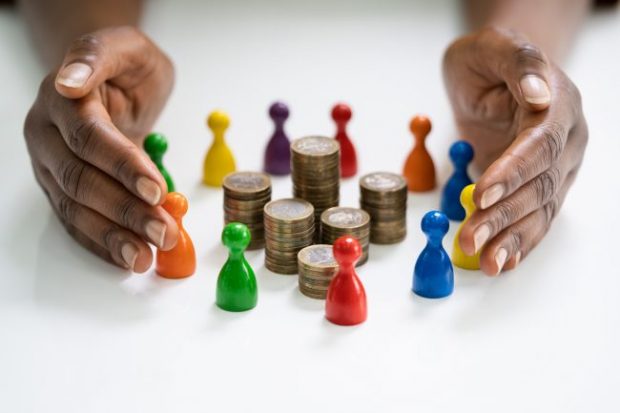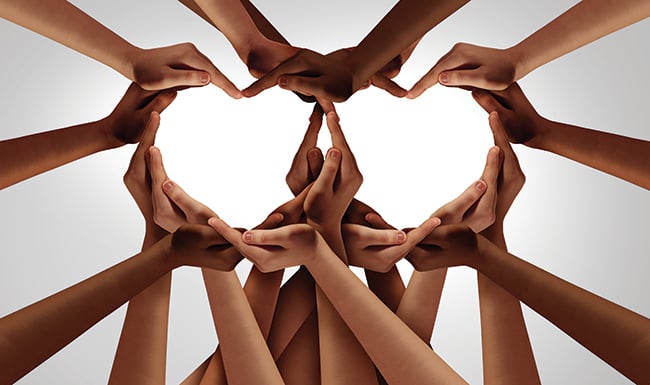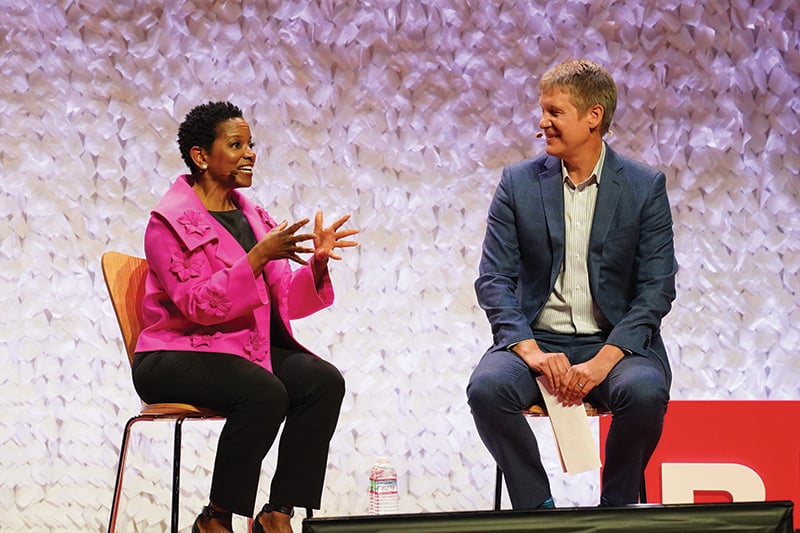 Source/Shutterstock
Source/Shutterstock
On the 158th anniversary of the chartering of the Freedman's Savings and Trust Company, it's important to highlight a key opportunity to drive federal investment in Black communities to address longstanding racial disparities caused by discriminatory energy, environmental and financial policy choices over the last century and a half: The Greenhouse Gas Reduction Fund (GGRF).
GGRF is a $27 billion fund designed to advance climate justice, and reach and benefit people and communities currently excluded from the green economy. Through its competitions, GGRF will direct capital and technical assistance to community lenders, like Community Development Financial Institution (CDFI) and Minority Depository Institution (MDI) credit unions that have deep roots in and strong records of accomplishment serving Black communities. The purpose of these funds is to develop and scale affordable loans and financing for projects and activities that reduce greenhouse gas emissions. This historic investment has the potential to address dramatic financial, economic and health disparities faced by Black and low-income communities. With community-owned and governed CDFI and MDI credit unions leading the way, GGRF will deliver real benefits to Black communities by creating good jobs in the green economy, improving health outcomes by reducing air pollution and helping households balance their budgets by reducing energy cost burden.
Recommended For You
Throughout our country's history, Black-owned financial institutions devoted to building wealth have encountered extraordinary hurdles ranging from discriminatory public policy to outright looting by white bankers, as in the case of the Freedman's Bank. Black Americans have similarly been, and continue to be, denied access to fairly-priced capital and targeted for wealth-stripping predatory practices. Patterns of discrimination have resulted in an insupportable racial wealth gap, which has grown over the past 30 years with white Americans now holding 10 times more wealth than Black Americans. Recently, the RAND Corporation found that there is "no evidence that the wealth gap could ever close without significant intervention," underscoring the need for meaningful public investment in Black communities.
In addition to being harmed by discriminatory economic practices, Black Americans are disproportionately burdened by both the cost and the harms of our fossil fuel-based energy system, experiencing disproportionately higher energy cost burdens. The median Black household spends 43% more of their income on energy than the median white household. Black communities are similarly air pollution-burdened – exposed to 50% more fossil fuel pollution than Americans overall, according to a 2018 EPA study. This type of pollution can lead to a wide range of negative health outcomes – from asthma to heart disease. Recent research from the American Chemical Society traces high levels of pollution burden back to mortgage redlining, making clear that financial inclusion is a key component of climate justice.
Despite these challenges, Black communities have organized to meet their own needs, launching credit unions to create opportunities for savings and investment. There are now 353 MDI credit unions that serve Black communities, providing services to more than three million members and holding more than $34.8 billion in community-controlled assets. These institutions will play a critical role in ensuring GGRF funding reaches Black communities and will expand access to critically needed, affordable green loan options and spur emissions reductions in pollution-burdened communities. CDFI and MDI credit unions are already leaders in green lending, offering small loans for: Homeowners seeking to replace old appliances with energy-efficient options, affordable vehicle loans that (combined with tax incentives) can make electric vehicles accessible, and numerous other energy efficiency and clean energy loan options designed to meet their communities' specific needs. Our job is to make sure these institutions are poised and ready to deliver on the goals of GGRF so that their communities receive needed resources and investment. This is the moment to honor the legacy of the Freedman's Bank, which was denied its potential and had its resources misappropriated by white bankers, by ensuring that Black communities enjoy the full benefits of the GGRF.
GGRF's funding of community lenders and the commitment to exceeding the Biden Administration's Justice40 equity goals will increase climate-focused investment in Black communities, reduce greenhouse gas emissions that are disproportionately harming Black Americans' health, and strengthen community institutions like CDFI and MDI credit unions that are best positioned to help their communities prepare to face escalating climate catastrophes and lead a just and equitable transition to a green economy. Although it's not enough to close the racial wealth gap or solve environmental racism, GGRF is a major step forward toward climate and economic justice.
 Cathie Mahon
Cathie Mahon Cathie Mahon is President/CEO of Inclusiv in New York, N.Y.
© Touchpoint Markets, All Rights Reserved. Request academic re-use from www.copyright.com. All other uses, submit a request to [email protected]. For more inforrmation visit Asset & Logo Licensing.






